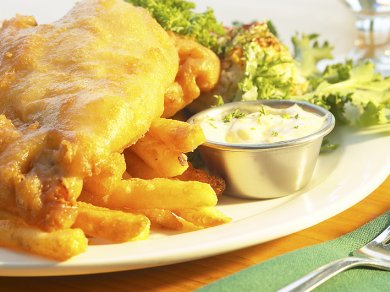During the process known as metastasis, cancer cells detach from the bulk of the tumor and colonize distant organs. In order to do so, they enter the blood circulation by attaching to the cells that constitute tumor vessels. This event is driven by interactions occurring between Galβ1–3GalNAcα1-Ser/Thr, a disaccharide present on the surface of tumor cells, and galectin-3, a protein situated on vascular cells.
Prasun Guha and colleagues, University of Maryland, USA, discovered that the commercial fish Pacific cod contains a glycopeptide which can bind galectin-3 with high affinity and, thus, prevent it from interacting with the disaccharide. When purified and tested in mice, this peptide, designated as TF100, blocked the ability of pancreatic cancer cells to dock to vascular cells and, consequently, to metastasize.
TF100 could, therefore, be used as an anticancer food supplement.
- Cod glycopeptide with picomolar affinity to galectin-3 suppresses T-cell apoptosis and prostatecancer metastasis,
P. Guha, E. Kaptan, G. Bandyopadhyaya, S. Kaczanowska, E. Davila, K. Thompson, S. S. Martin, D. V. Kalvakolanu, G. R. Vasta, H. Ahmed,
Proc. Natl. Acad. Sci. USA 2013.
DOI: 10.1073/PNAS.1202653110



